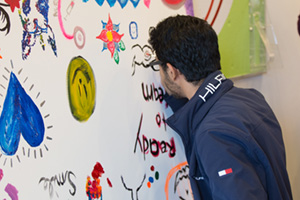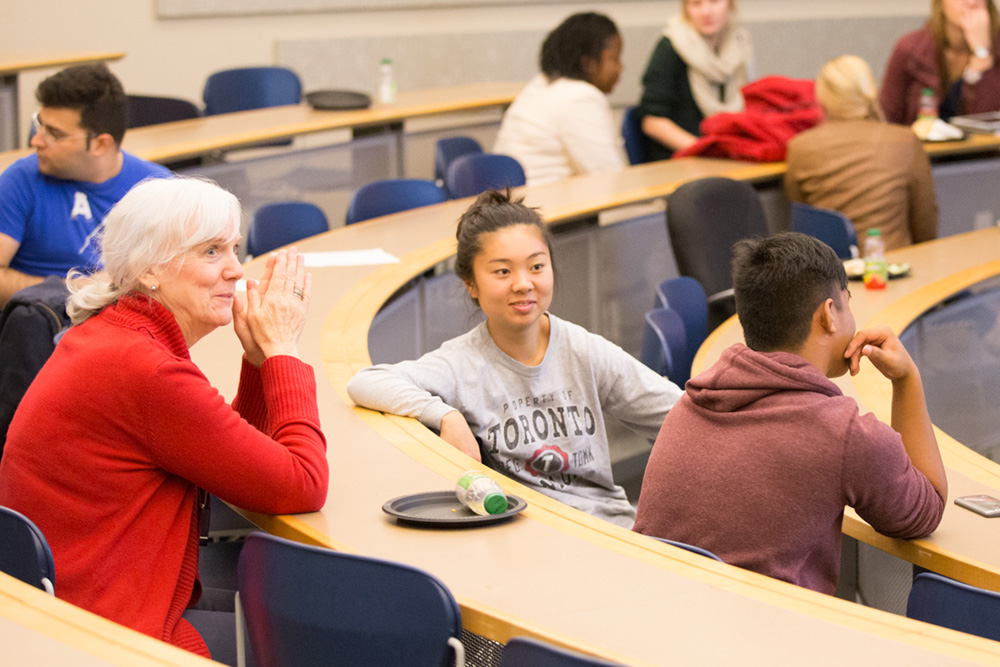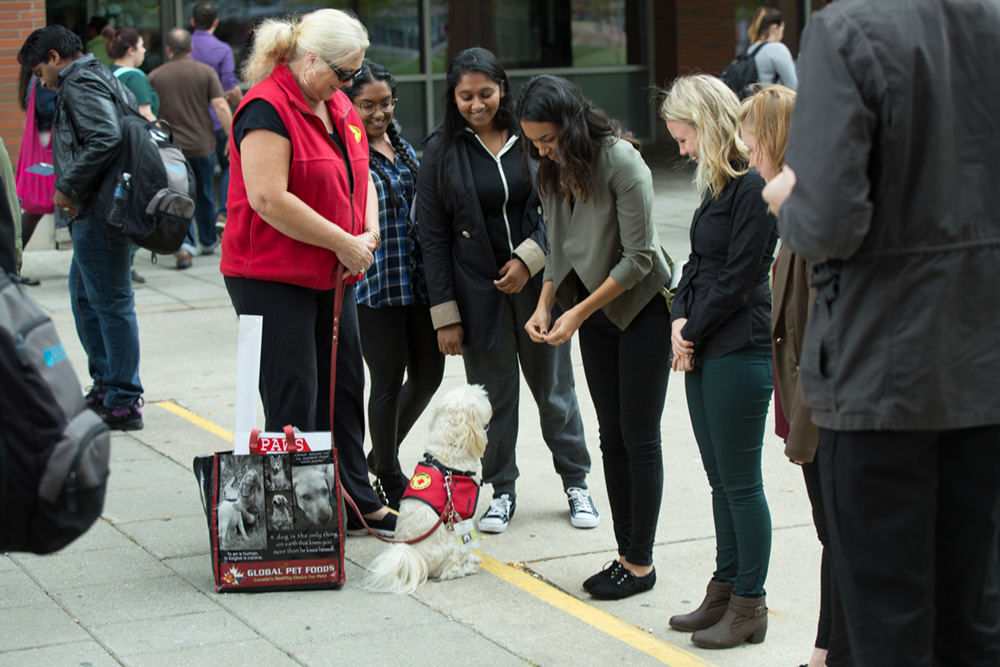UOIT recognizes Mental Health Awareness Week
October 15, 2015

The University of Ontario Institute of Technology’s (UOIT) Student Mental Health Services hosted the university’s first-annual Mental Health Awareness Week from Monday, October 5 through Thursday, October 8.
A variety of events were held on campus to connect students, faculty and staff with mental health-related resources at UOIT, Durham College and throughout the Durham Region. Events included:
Monday and Tuesday:
- Mental Health Awareness fairs at the downtown Oshawa (October 5) and north Oshawa (October 6) locations, which provided students with access to resources to help them learn how to take better care of their bodies and minds. The fairs also featured games, prizes and a free lunch.
Tuesday:
- Sweat lodge ceremony to help relieve stress, rejuvenate, focus and cleanse.
- Art with Impact event, which featured movies about mental health followed by a discussion.
Wednesday:
- Visit from Therapeutic Paws of Canada, a non-profit organization that provides animal resources for physical, mental, educational, motivational and socialization needs. Students had a chance to take a break from their studies and relax while petting and playing with dogs.
Thursday:
- Open Mic afternoon at E.P. Taylor’s Pub and Restaurant, where students had the opportunity to show off their musical abilities and watch their peers and special musical guests perform.
In addition to offering mental health services for students, the university is also engaged in research projects related to mental health matters. Some of the researchers and their projects include:
- Dr. Wendy Stanyon, Associate Professor, Faculty of Health Sciences
Dr. Stanyon has led the development of Mindsight. Created in 2010 in collaboration with Dr. Bruce Ballon, a psychiatrist affiliated with the Centre for Addiction and Mental Health, Mindsight is an online educational resource to promote mental health awareness, reduce stigma, and teach users about some basic strategies and resources for supporting individuals living with mental illness.
- Jennifer Laffier, Senior Lecturer, Faculty of Education
In 2014 Laffier was appointed Senior Trainer with Mental Health First Aid Canada, a sub-division of the Mental Health Commission of Canada. In addition to this achievement, she also works with other organizations considering implementation of mental health first aid, including school boards, police services and mental health agencies. She provides support and assistance with the curriculum development for these organizations. She also leads workshops about mental health first aid in the workplace.
- Dr. Matthew Shane, Assistant Professor, Faculty of Social Science and Humanities, and Dr. Nathan Arbuckle, Post-doctoral Fellow in Dr. Shane’s laboratory
Dr. Shane is undertaking a study to evaluate the brain systems underlying empathy and perspective-taking, to better understand the systems that support the accurate understanding of another person’s thoughts and feelings. Dr. Arbuckle is working on a complementary project aimed at using modern neuroscientific methods to evaluate whether one can increase their level of empathic concern in certain situations. Read more about their research.
Dr. Shane has also researched the possibility of training your brain to more appropriately respond to negative feedback. His findings could help lead to the development of new therapeutic interventions for people who suffer from anxiety, depression or substance abuse.
2 > 1




